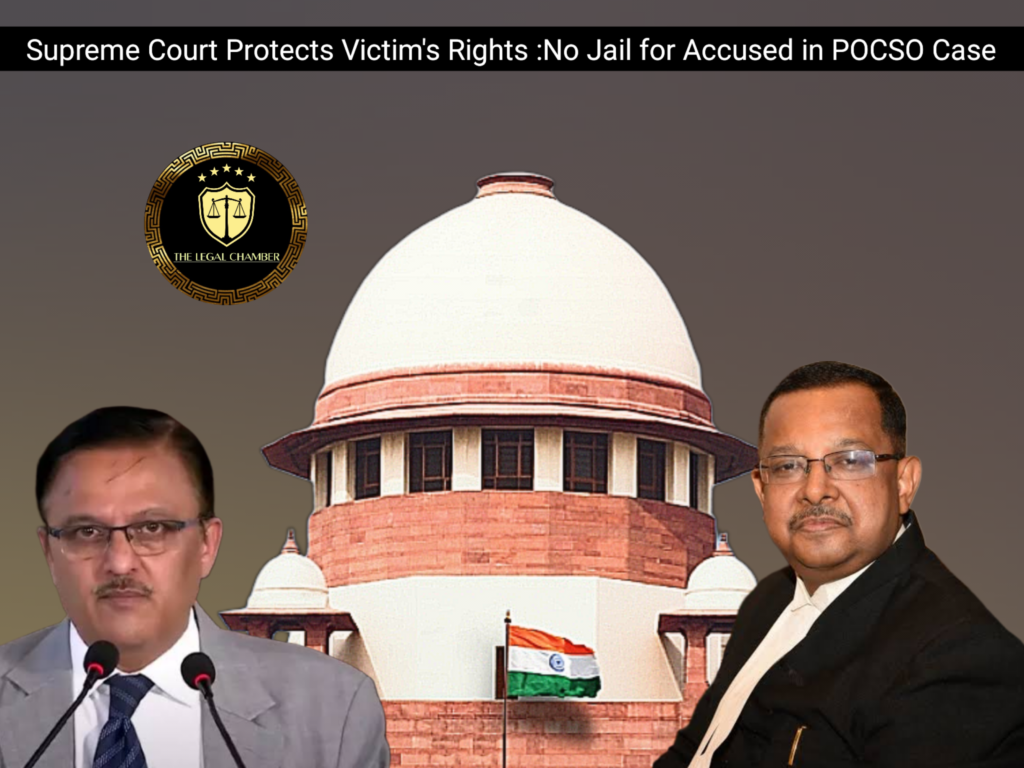
The Supreme Court overturned a High Court ruling, reinstating convictions under the POCSO Act and IPC, emphasizing that Section 482 CrPC cannot quash serious offenses even with victim settlement. The Court underscored the State’s constitutional duty under Article 21 and the JJ Act to protect and rehabilitate POCSO victims and their children.
Facts Of The Case:
The case involves a criminal appeal by the State of West Bengal against a Calcutta High Court judgment from October 18, 2023. The High Court had set aside the conviction of an accused person under Section 6 of the POCSO Act and Sections 363 and 366 of the Indian Penal Code (IPC). The Supreme Court, in a judgment dated August 20, 2024, set aside the High Court’s impugned judgment and restored the Special Court’s verdict of conviction for offenses under Section 6 of the POCSO Act and Sections 376 (2)(n) and (3) of the IPC. However, the sentencing was postponed.The victim, a fourteen-year-old girl at the time of the incident, left her home on May 20, 2018, enticed by the accused. A female child was born to the victim, and the accused is admittedly the biological father. The victim’s parents completely abandoned her from 2019. The Supreme Court noted the systemic failure of the State and society to protect the victim, leaving her with no option but to seek shelter with the accused. The victim, now an adult, wishes to continue residing with the accused and has expressed a desire for his liberty. Reports from a court-appointed committee highlight the victim’s struggles, emotional and financial hardship due to the legal battle, and her current commitment to the accused and their child. The victim also incurred significant debt to defend the accused.
Procedural History:
The procedural history begins with the State of West Bengal preferring Criminal Appeal No. 1451 of 2024, challenging a Calcutta High Court judgment dated October 18, 2023. Concurrently, Suo Motu Writ Petition (C) No. 3 of 2023 was initiated in the Supreme Court due to objectionable observations in the High Court’s judgment, noting a systemic failure to protect the victim.Earlier, a Special Judge under the POCSO Act convicted the accused for offenses including Section 6 of the POCSO Act and Sections 363/366 of the IPC. The High Court subsequently set aside this conviction. On August 20, 2024, the Supreme Court set aside the High Court’s judgment, restoring the Special Court’s conviction for Section 6 of POCSO and Section 376 (2)(n) and (3) of IPC, while confirming acquittal for Sections 363/366 IPC; sentencing was deferred. The Supreme Court appointed amicus curiae and constituted an expert committee to assess the victim’s rehabilitation, which submitted preliminary and final reports on October 16, 2024, and January 28, 2025, respectively. The Court interacted with the committee and victim on April 3, 2025, and passed further orders regarding the accused’s sentence and victim’s rehabilitation on May 23, 2025.
READ ALSO :Affidavits & Fair Trial: Why the Supreme Court Overturned a Murder Conviction
Court Observation:
The Supreme Court observed a systemic failure by the State to protect the victim, which resulted in her fate and well-being being tied to the accused. The Court noted that despite existing legal provisions, the State failed to provide adequate care to the victim of the POCSO Act offense, who was only fourteen years old at the time. This collective failure of society and the State machinery left the victim without support from her parents or the State when she needed it most, denying her the opportunity to make an informed choice about her future. The Court emphasized that it is the State’s responsibility to care for helpless victims of heinous offenses, as the right to a dignified and healthy life is an integral part of the fundamental right guaranteed under Article 21 of the Constitution. The Court further highlighted that the failure to strictly implement Section 19(6) of the POCSO Act and relevant provisions of the JJ Act deprives victim children of welfare measures and violates Article 21.A significant observation was that the victim, despite the incident being a crime in law, did not perceive it as such, and the trauma she experienced stemmed not from the “legal crime” but from the subsequent legal battle, police interactions, and the constant struggle to save her husband from punishment. The Court was troubled by the prospect of sentencing the accused, concluding that sending him to jail would further harm the victim, who is now emotionally committed to him and focused on their small family and their daughter’s education. The Court acknowledged that at this stage, true justice for the victim meant not separating her from the accused, emphasizing that this case illustrates a complete failure of society and the legal system, necessitating the State to act as a true guardian for the victim and her child’s rehabilitation.
Final Decision & Judgement:
The Supreme Court, in its final decision on May 23, 2025, set aside the Calcutta High Court’s judgment dated October 18, 2023, and reinstated the Special Court’s conviction of the accused for offenses under Section 6 of the POCSO Act and Sections 376 (2)(n) and (3) of the Indian Penal Code (IPC). The Court confirmed the acquittal for Sections 363 and 366 of the IPC. While the conviction was restored, the sentencing of the accused was postponed, with further directions to be passed on May 23, 2025, after considering reports from an expert committee on the victim’s rehabilitation. The Supreme Court emphasized the State’s responsibility under Article 21 and the Juvenile Justice Act to protect and rehabilitate victims of POCSO offenses, particularly abandoned ones. The Court also issued directions regarding the formation of an expert committee by the Ministry of Women and Child Development to implement suggestions for victim rehabilitation.
Case Details:
Case Title: In Re: Right to Privacy of Adolescents Criminal Appeal No. 1451 of 2024 Citation: 2025 INSC 778 Date of Judgment: May 23, 2025 Judges/Justice Name: Justice Abhay S. Oka and Justice Ujjal Bhuyan
Download The Judgement Here